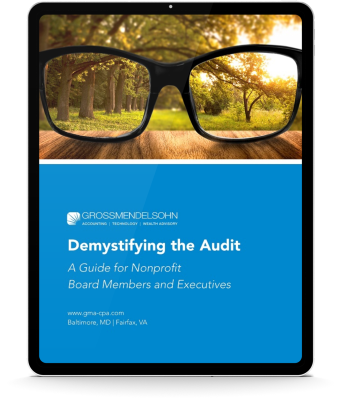For many nonprofits, there is often no greater challenge than fundraising. Despite the great work your organization does every day, the truth is, fundraising is often one of the most vital components of a nonprofit’s operations. After all, the funds you raise are most likely used to pay the bills, your staff and support the programs you implement.
Whether you have a full-time fundraising team or rely on volunteers to solicit donations, there are a several elements you need to be successful in your fundraising efforts.
1. A Compelling Case for Support
As a nonprofit organization, there is a good chance you already have a compelling case to make for soliciting financial support. However, remember that while you work every day to advance your organization towards its mission, the public has a much more limited knowledge of your nonprofit’s activity. You have to communicate the work your organization is doing both in your day to day conversations and as part of your nonprofit’s larger media and marketing strategy.
One free and easy way nonprofits can show the public what’s really going at their organization is by regularly posting photos, videos and updates to their social media pages and website. Boosting your online presence will make an impact not only in getting the word out there, but will also provide documented proof of the work you are doing.
Remember, while you and the other people working at your organization may know the facts and numbers behind what your nonprofit has accomplished and wants to accomplish, the public needs frequent updates in order to get to know your organization as well as you do.
2. Strong and Effective Leadership
A well-known and effective leader can be a major differentiator as to whether a donor contributes to your nonprofit. Look at the success of business owners like Bill Gates and Steve Jobs. Their presence in the public’s eye allowed them to build successful and profitable companies, which succeed even to this day because of the legacy and persona they created.
If a potential donor feels they can trust and respect your organization’s leadership – whether that be your executive director, a program manager or volunteer – you have that much of a better chance of getting that person to contribute.
The secret here is, you need to make sure your all-star leaders are visible. They need to be out at community events, giving speeches and networking on behalf of your organization on a regular basis.
3. Sufficient Viable Financial Prospects
There is no bigger roadblock in fundraising than having no one to donate to your cause. Your organization must have a list of viable financial prospects, whether that’s a list of students’ parents at your school or people who visit your art museum. Growing and maintaining this list isn’t always easy, and the unfair reality is, the nature of your organization may make it that much harder (or easier) to build your list of contacts.
Once you have a list, evaluating your financial prospects requires you to take a hard look at your organization and ask – do these people really have a reason to give to us? This means you must be realistic as to whether your financial prospects have a personal connection to your organization. Remember, for your ask to stand out among the dozens of solicitations a donor receives each year, your nonprofit must be memorable and forefront in their mind.
4. Fundraising Plan
Trying to fundraise without a fundraising plan is like trying to find your keys in the dark – time consuming and unproductive. You need a strategy to be effective in meeting your fundraising goals. This can be accomplished through a written plan, which should drive every action you take in your fundraising efforts.
This plan could be a calendar, a checklist or a detailed outline. Whatever it is, make sure your plan outlines what you want to accomplish in your fundraising and, better yet, assign dates as to when you will achieve those goals.
About Vince Connelly
 Vince Connelly is the president of Connelly & Assoc. Fundraising, LLC, a consulting firm specializing in feasibility studies, and major gift and capital campaign coordination. Vince has over 30 years of experience working with nonprofit organizations in Baltimore and throughout the Mid-Atlantic region.
Vince Connelly is the president of Connelly & Assoc. Fundraising, LLC, a consulting firm specializing in feasibility studies, and major gift and capital campaign coordination. Vince has over 30 years of experience working with nonprofit organizations in Baltimore and throughout the Mid-Atlantic region.


